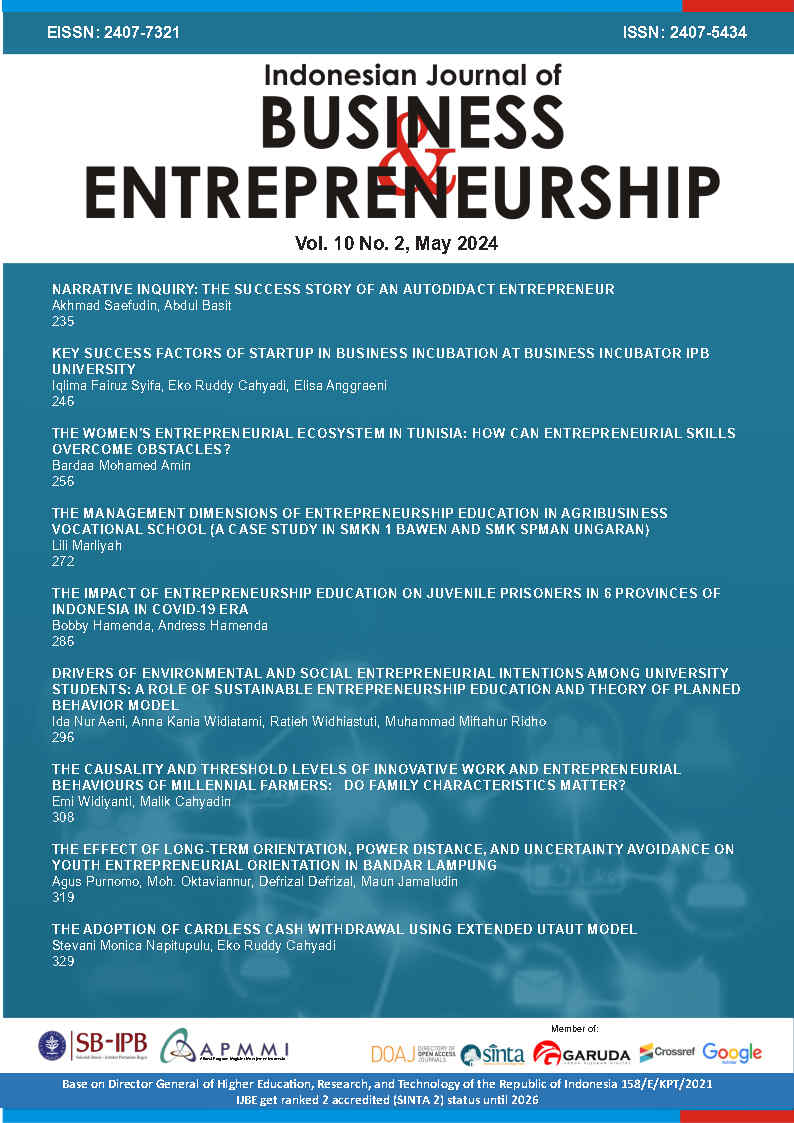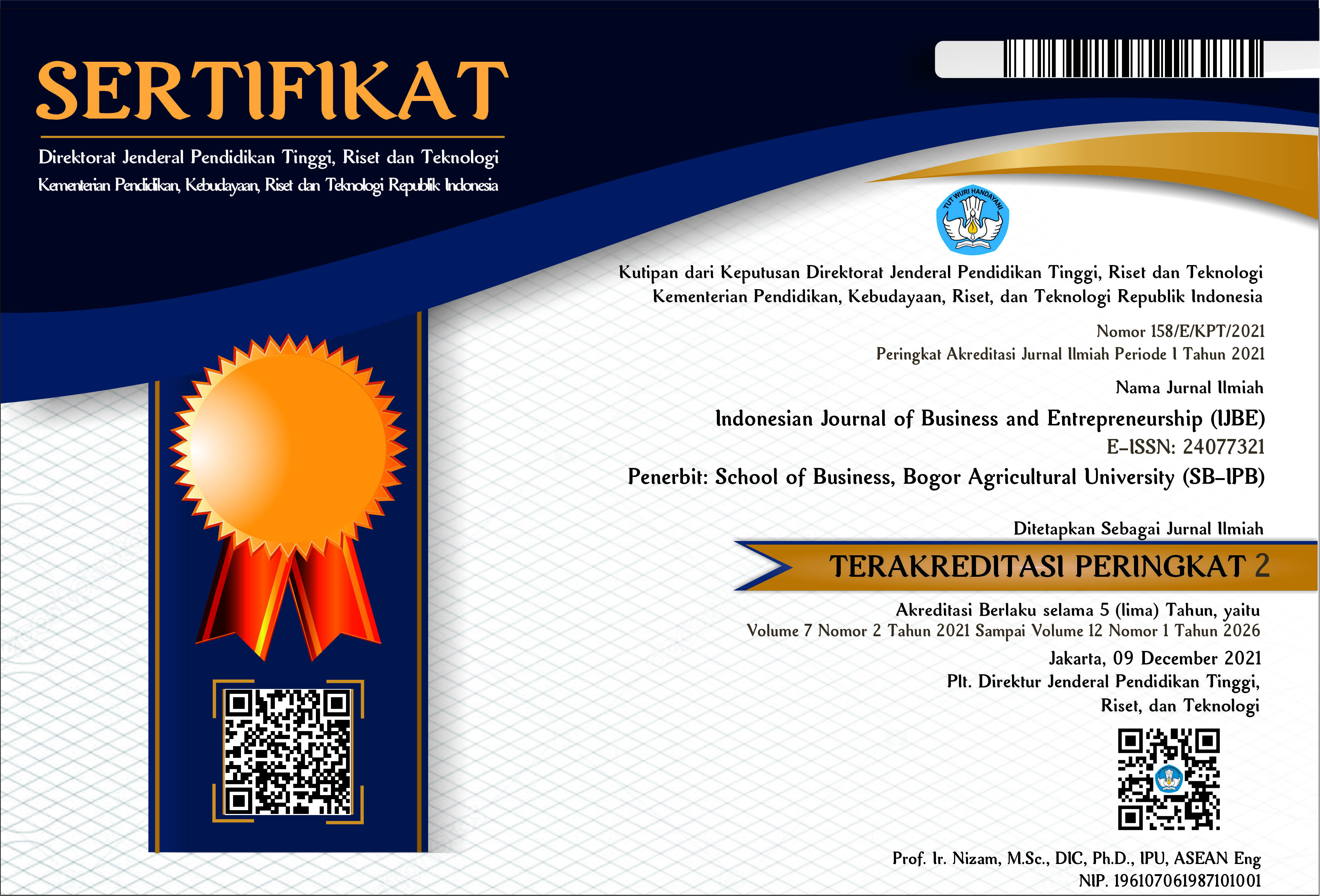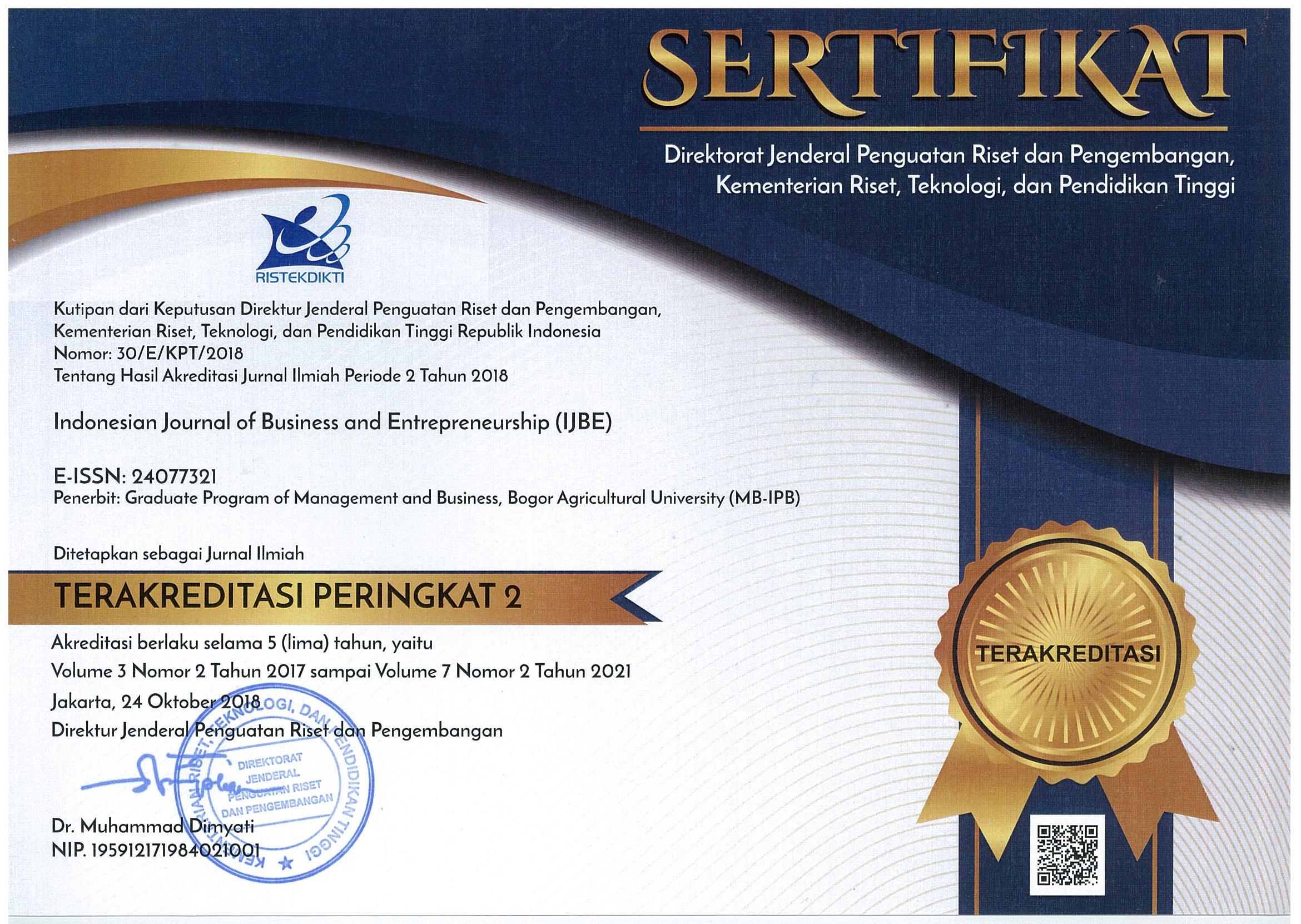Optimizing Micro, Small, and Medium Business Assistance Programs in The Food Sector
Abstract
Background: The effectiveness of mentoring programs for micro, small, and medium enterprises (MSMEs) needs to be evaluated in order to develop effective mentoring programs. Each MSME requires a different mentoring program, so it is necessary to evaluate the effectiveness of the existing mentoring program in order to design the next mentoring program.
Purpose: This research aims to determine the effectiveness of the community empowerment program through mentoring MSMEs in improving the welfare of meatball traders in Jakarta implemented by Dompet Dhuafa.
Design/methodology/approach: Data collection Analysis includes secondary data, field observations, in-depth interviews, and documentation. Analysis was carried out using triangulation techniques which included data reduction, presentation, and drawing conclusions.
Findings/Result: The research findings can be stated as follows: 1) Collective Mentoring Program: The research results show that programs that focus on mentoring groups have a significant positive impact on cohesiveness and unity in the meatball trader community. This collaborative support plays an important role in advancing the development of micro and small businesses. Apart from that, the mentoring program is also effective in increasing traders' motivation and knowledge in entrepreneurship. 2) Financial Assistance Programs: This study underscores the importance of financial assistance programs in providing the necessary capital for microenterprises. However, this suggests that this form of aid is more suited to meeting short-term financial needs than as a long-term solution.
Conclusion: There are three types of mentoring programs carried out, namely Group Mentoring, Increasing Partner Capacity Through Training, and Financial Assistance. Of the three types of mentoring programs, mentoring groups, especially in forming cohesive and family groups (recruitment results), are considered the most effective in helping meatball traders survive during the pandemic. Especially in forming groups or communities that regularly hold meetings and collectively help solve problems, maintain the cleanliness of sales equipment (carts, plates, spoons, etc.), and try to develop or find out how to make the taste of these meatballs more popular. with customers. But what they appreciated most was a community meeting that had never been held before.
Originality/value (State of the art): There has been no evaluation of this program so it is very important to evaluate the implementation and impact of the mentoring program on business continuity, in order to improve the mentoring program in the future.
Keywords: MSMEs, mentoring program, evaluation, effectiveness, meatball traders









